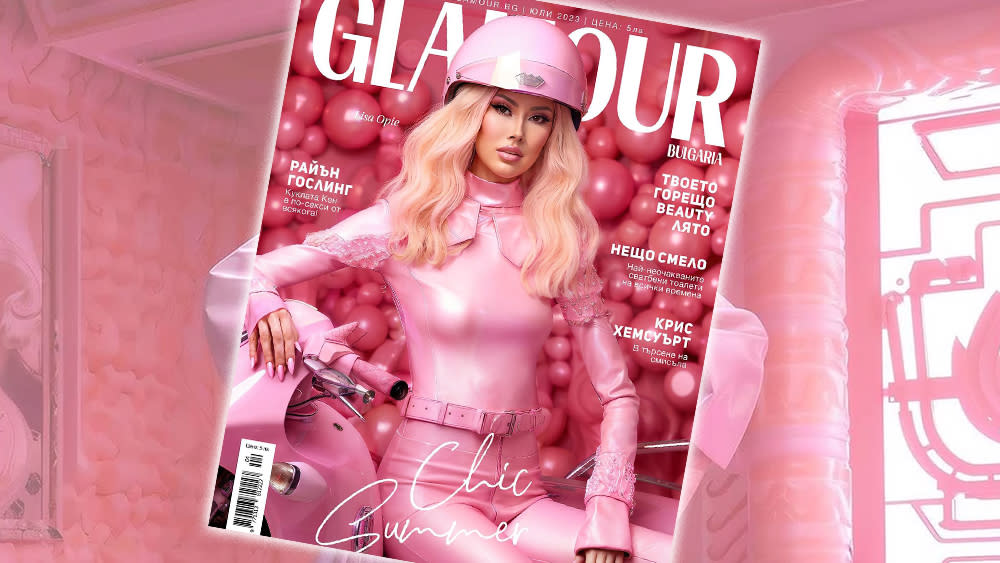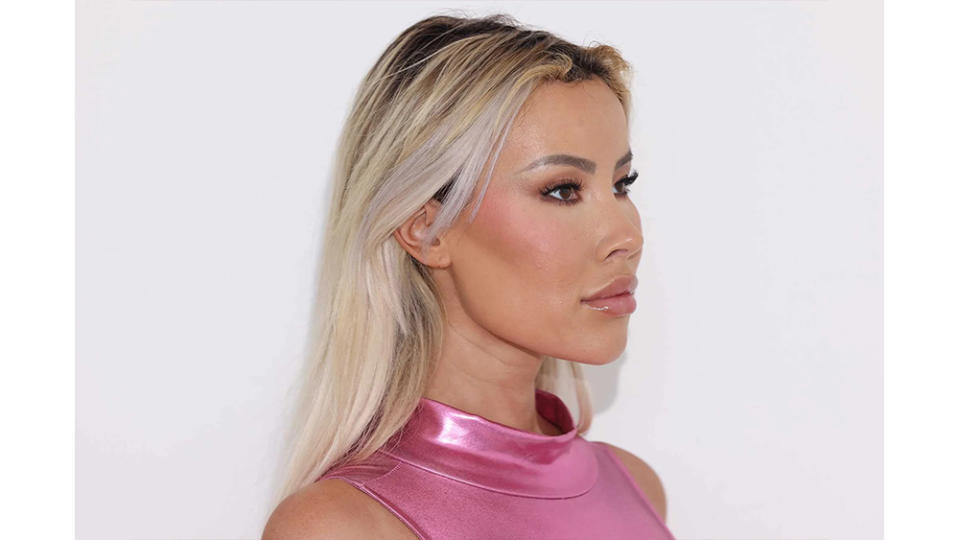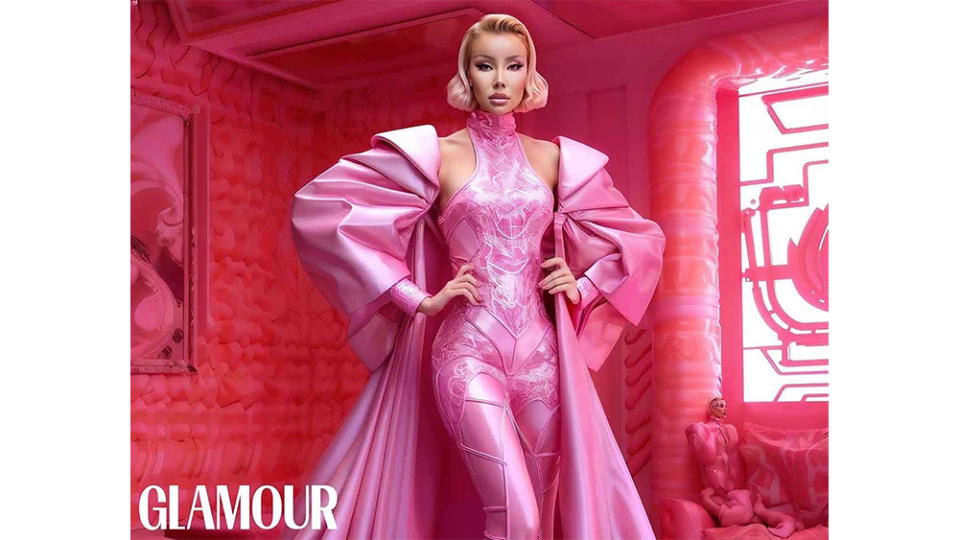Barbie-inspired AI magazine cover sparks controversy

Another day, another AI art controversy. Text-to-image generators are increasingly entering mainstream use, and that's now extending to the covers of fashion magazines. Hot on the heels of the very strange Vogue Bella Hadid AI cover, Glamour is the latest to use AI-generated imagery instead of traditional fashion photography for a cover image.
A Barbie-inspired cover for the July edition of Glamour in Bulgaria features model and swimsuit designer Lisa Opie. Only it isn't really her. And the clothes don't exist either. The image was generated entirely by an AI image generator.
A post shared by Lisa Opie (@lisa_opie)
A photo posted by on
The design, one of several covers created for the July 2023 Bulgarian edition of Glamour, was a proposal from Opie herself. She told the New York Post that she wanted to do a "futuristic Barbie theme, because, first of all, Barbie is, like, my lifestyle and it’s who I am. And with the ‘Barbie’ movie coming out, it was perfect."
Her stylist, Joey Rolon, discovered an image of Barbie wearing a breastplate, and Opie decided she wanted that look. But it turned out that the photo was an AI image generated by the digital creator behind the Instagram account @ai_fashion_photos.
“So I just sent her a DM, and I was like, 'Hey, I love your futuristic Barbie AI images. Is there any way you could incorporate my face into a possible magazine cover?; Opie said. “I didn’t say what it was for, but she was, like, ‘Sure, let’s chat.’ So that’s how it all started.”


Opie says she sent pictures of her face from every angle, and that the digital artist came back with around 50 potential images in just 20 minutes. “It was super, super easy, and it was really fun, because sometimes it would generate things that you wouldn’t even think of, but you like it better than what your original idea was,” Opie says – although she admits that “they did edit the photos a little bit, just to enhance them [and] make them look a little bit more like me."
But is it fashion imagery? After all, the clothes depicted don't exist. While there are plenty of emoji flames and hearts on Opie's Instagram posts about the cover, some people are aghast. "Just when you think it can't get any more fake, this happens," one person wrote. "It is an insult to fashion designers, hair/makeup artists, photographers and models," someone else commented.
A post shared by Lisa Opie (@lisa_opie)
A photo posted by on
While Opie recognised concerns about AI art, she claimed the tech has one overlooked benefit: less waste. “I know how much waste goes into productions and fashion shows and photo shoots,” she said. “Even just the backdrops, creating a set, flying everybody out. So I think it’ll be a really good way to help the environment with absolutely zero waste going into production.”
Opie says she uses AI generators for her own swimwear businesses but admits that she is concerned after people she knows were subjected to the creation of AI-generated fake nudes. ”They might have to focus on legislation to just keep it under control, because there is a gray area there," she says. "I think that people do need to be protected because AI is such a wild, wild West right now."
This isn't the first AI-generated magazine cover we've seen. As well as Vogue Italy's Bella Hadid cover, which combined traditional fashion photography and AI, the French camera magazine Réponses Photo used a 100% AI-generated image on the cover of one edition to raise awareness of the impact the technology could have on photography. We've also recently seen AI deepfake technology move people to tears in a new Volkswagen advert.

